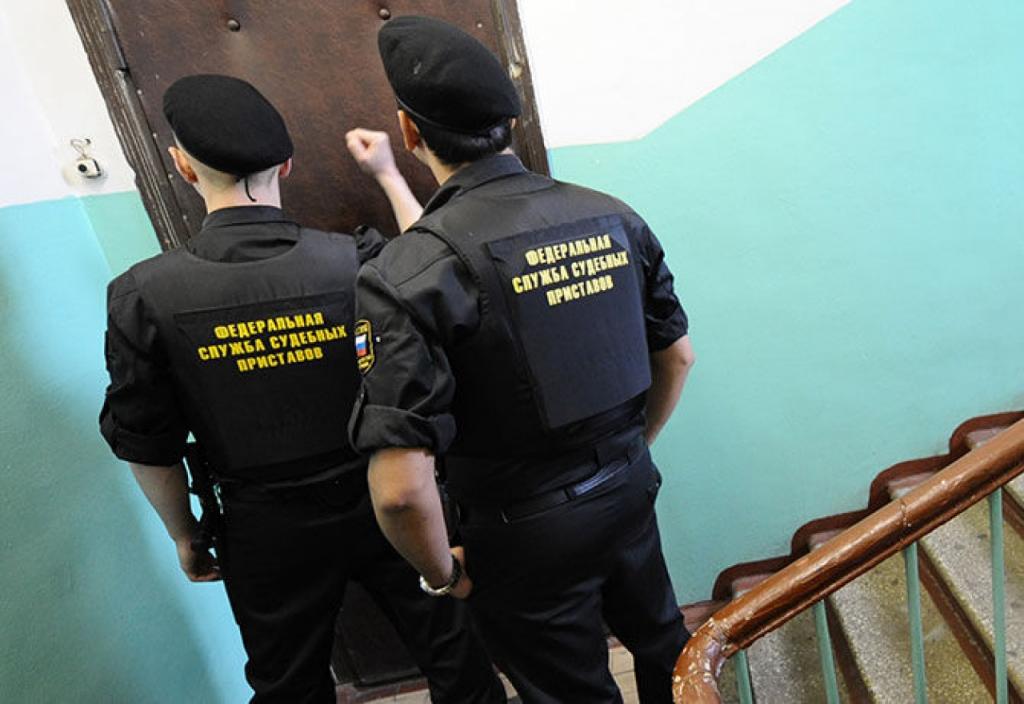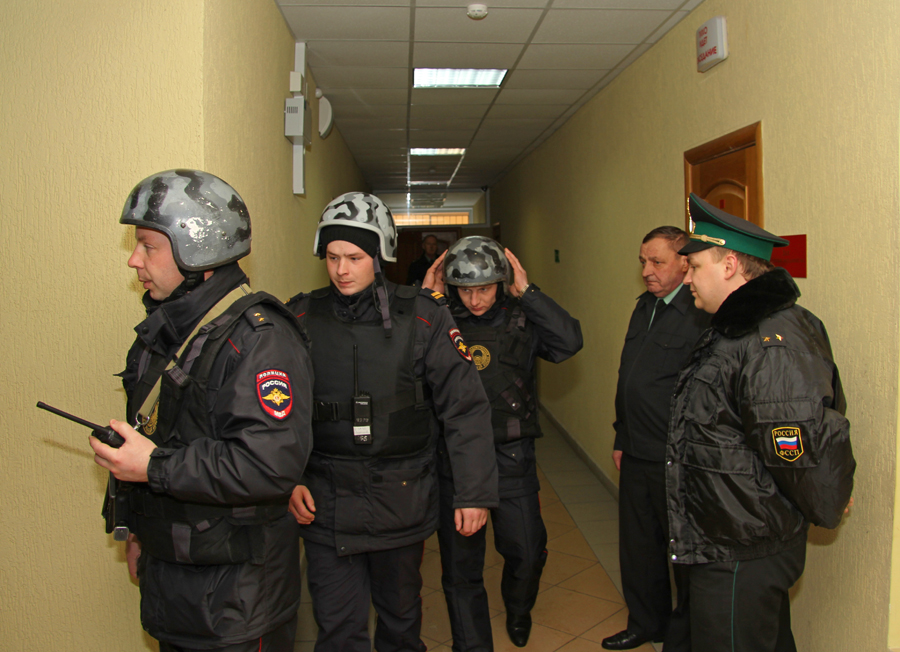FSSP is called a federal body that is part of the executive branch. He exercises authority to ensure the established procedure for legal proceedings, as well as to enforce judicial acts, documents of other bodies and specialized persons. Our article will detail how the bailiffs work.
Debt Finder
Representatives of the bailiff system have every right to carry out the search and finding people with debts. To do this, you need to use an extensive list of methods and tools that allow you to accurately and quickly identify the location of a person with debts. But how exactly does the bailiff work, what is the sequence of his actions?
At the beginning of the operation to identify the debtor, the bailiff tries to get through. For this, the telephone numbers that were provided by the borrower at the time of applying for the loan are applied. The bank will provide the court representatives with all the necessary information about the citizen, if the bailiffs provided a special written notice. If no one answers the number, then calls are made to the landline phone. Lawyers agree that banking specialists interact with employees of the MSSP from the Mip group.
Naturally, in most cases, calls do not give any results. Then people from the bailiff department try to get through the debtor's friends. At the third stage, there is a survey of such persons in real life. Sometimes bailiffs use social networks, but more often, as they say, they go “offline”.
Debt collection
How do bailiffs work in the area of debt collection? A person with large debts may be held administratively liable in court proceedings. Bailiffs are able to blame only if there is a special package of documents that confirm the presence of debt. This package includes a bond receipt, transaction papers and some other documents.

If the package is formed and sent to the court, but the debtor still does not make contact, representatives from the bailiff department begin a direct search for the debtor. It should be remembered that a debt receipt is valid only for three years. Moreover, the court decision has legal force up to its full execution.
In order to make a decision on the forced payment of a debt, it is not necessary to call the defendant to court. Judicial proceedings are carried out by order. Moreover, the debtor himself will no longer be able to defend or protect his interests.
Ways to capture the debtor
How do bailiffs work to find the debtor and force him to bear responsibility? There are several popular and effective ways. So, if phone calls and meetings with friends of the debtor did not help, FSSP representatives launch their own investigation. They determine the place of residence of the debtor by the registry. The investigation itself includes the following steps:
- wanted persons with debts;
- determination of the circle of persons with whom the debtor communicates or resides, interrogation of such persons regarding the location of the wanted person;
- a set of information about the place where the debtor may be;
- making a visit by the bailiff to the place of official employment of a person with debts;
- the implementation of other legal methods to search for and capture a citizen.
The list of rights and obligations of court bailiffs includes confiscation of property of the debtor. Moreover, they are able to take away property without the direct consent of its owner.
Ways to resolve the problem
According to the norms of domestic law, the debtor must sign the notification twice that he is being called to account of a criminal nature to pay a visit to the bailiff. At the same time, two documents must be returned with an interval of less than one month. Twice the debtor receives the documents and puts his signature in them. If this does not happen, the investigation will be frozen for a sufficiently long time.

In the absence of registration at the place of residence, as well as in the absence of a telephone, real estate, relatives and friends with the debtor, bailiffs use alternative methods of resolving the problem.
This is an appeal to the services of additional specialists who are able to conduct an investigation, conclude an agreement with the bank on the possibility of writing off a debt, initiate bankruptcy proceedings, etc. The debtor himself should be aware that he has the opportunity to file a complaint against representatives of the FSSP. However, this should be done only if there is a really high-quality evidence base.
Performance list
A rather important place in the work of bailiffs is occupied by such a document as executive dist. It reflects all types of requirements that need to be implemented by the debtor for a specific period. Moreover, the paper gives the right to the relevant state authorities to seize the debtor's property and finances. All confiscated items are sent as payment of arrears. The document itself must be executed in accordance with the rules and regulations of the Federal Law, which is valid throughout the Russian territory.

A writ of execution is issued by a representative of a civil, arbitration or arbitration court - all depending on the nature of the case. The receipt of a writ of execution by bailiffs is possible only after filling out a special application.
Leaf Duration
How should bailiffs work with a writ of execution? It all depends on the type of this document. Sheets are as follows:
- to return funds, items, or even children who were illegally stolen;
- upon compensation for damage that was caused by a committed criminal act;
- when making salary payments to the employee who was illegally dismissed from the workplace;
- in respect of non-pecuniary damage.

If the writ of execution has the purpose of collecting debt, then its duration will be about three years from the date of the formation of the decision during the trial. For example, the duration of the writ of execution for alimony is valid when the person to whom the payments are directed has reached the age of majority.
Receive Deferral
The list of rights and obligations of bailiffs includes the possibility of resolving the issue with a debt peacefully. If this did not happen, then the representative of the FSSP implements actions of a different nature. Here it is necessary to highlight the seizure of property and bank accounts of a person with arrears, as well as the transfer of paper to the debtor at the place of work.

There are cases when representatives of the federal department of judicial bailiffs are able to suspend the deadlines for the implementation of the requirements, which are drawn up on the writ of execution. Among these reasons should be highlighted:
- realization by the debtor of military duty or his stay on a long business trip;
- the debtor is considered legally incompetent or is jurisdictional;
- death of a debtor;
- the debtor wishes to challenge the claims that have been spelled out in the writ of execution;
- the debtor began an appeal against the fairness of the trial and the actions of the representative of the bailiffs.
The law does not specify a clearly fixed period of delay in the implementation of executive actions.
Bailiffs
The question of whether it is difficult to work as a bailiff can be decided on the basis of the number of duties of representatives of the FSSP. And they really have a lot of responsibilities. So, among the functions indicated above is also the seizure of property of the debtor. Arrested property is prohibited from selling, giving, renting, mortgaging, or trying to re-register.

When seizing property, the bailiff himself, several witnesses, and also the person to whom the property will be deposited should be present.
Types of Arrested Property
The list of property subject to seizure includes cash accounts in any currency, securities, receivables, real estate, trading and clearing accounts, as well as any other movable property.

All information about the transferred property is indicated in a special act. It is also allowed to seize money stored in accounts with credit organizations.
Thus, we examined in detail how the bailiff service works. In short, her responsibilities include working with debtors.
